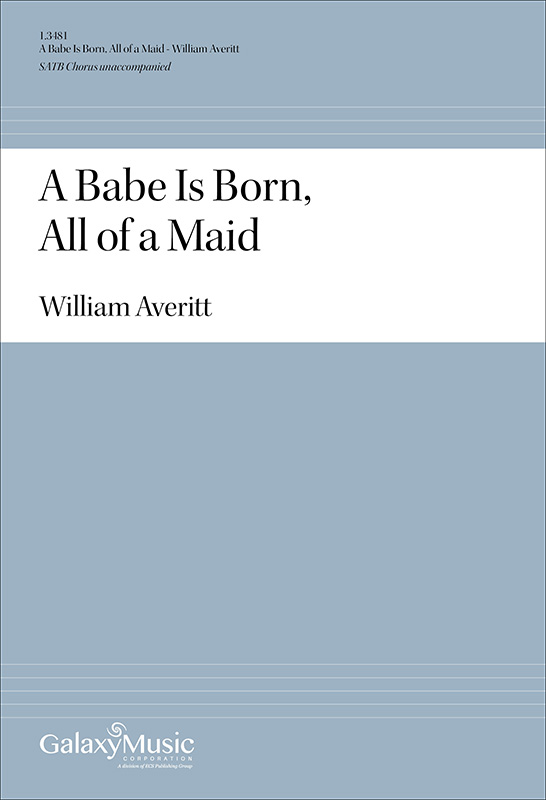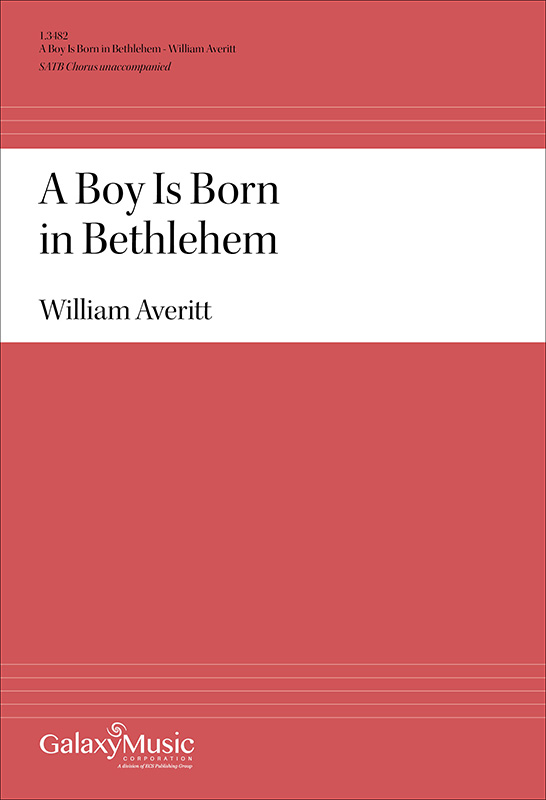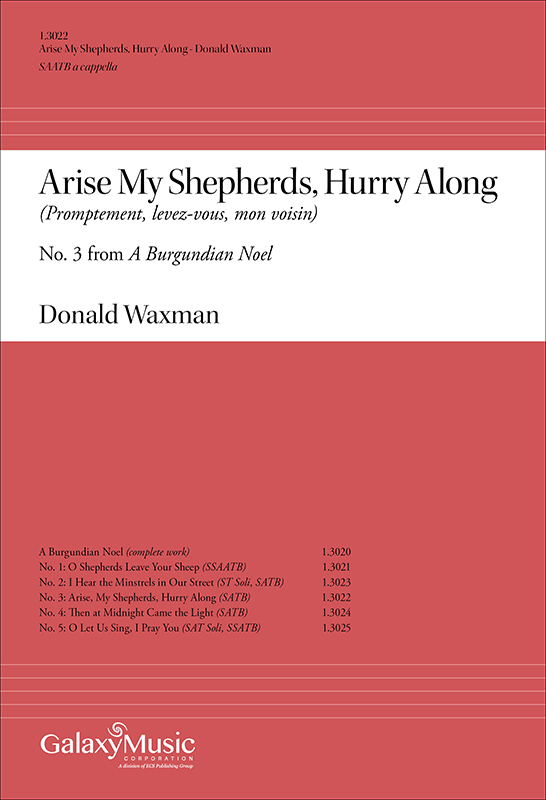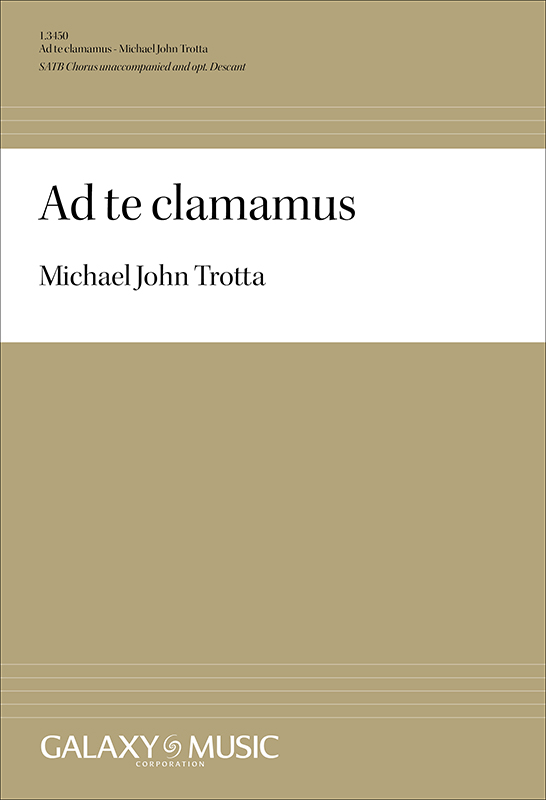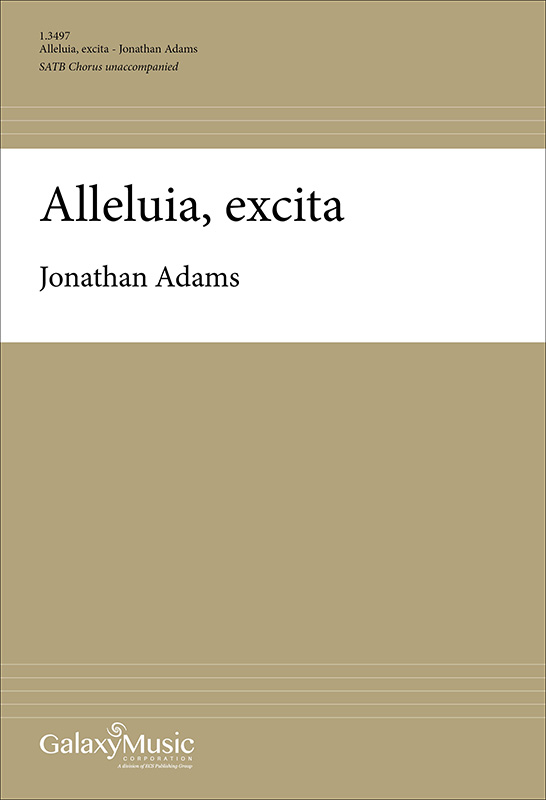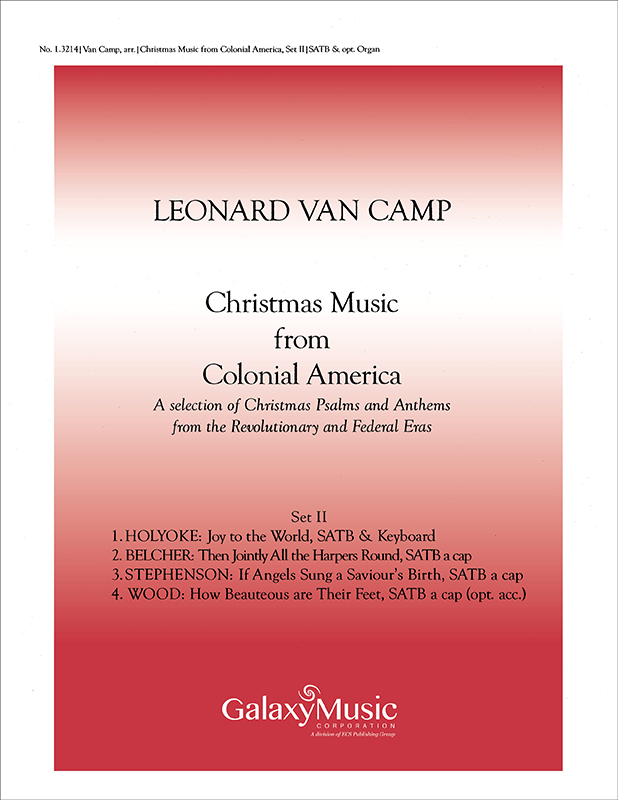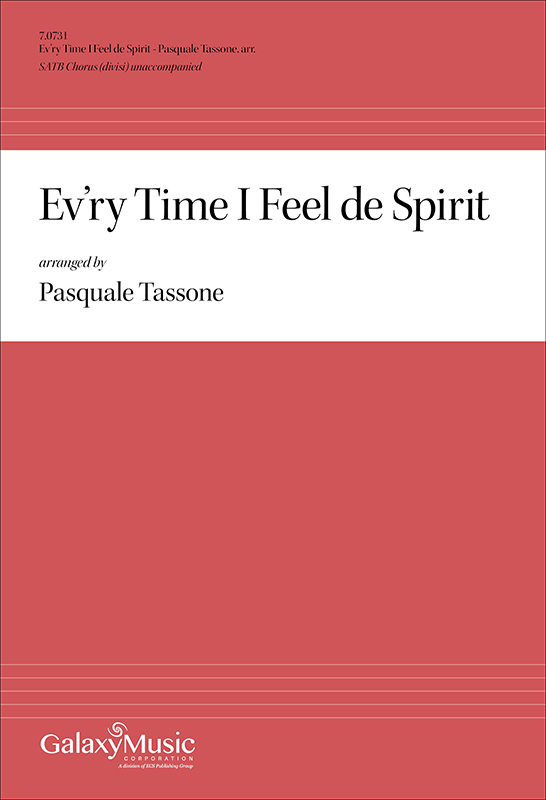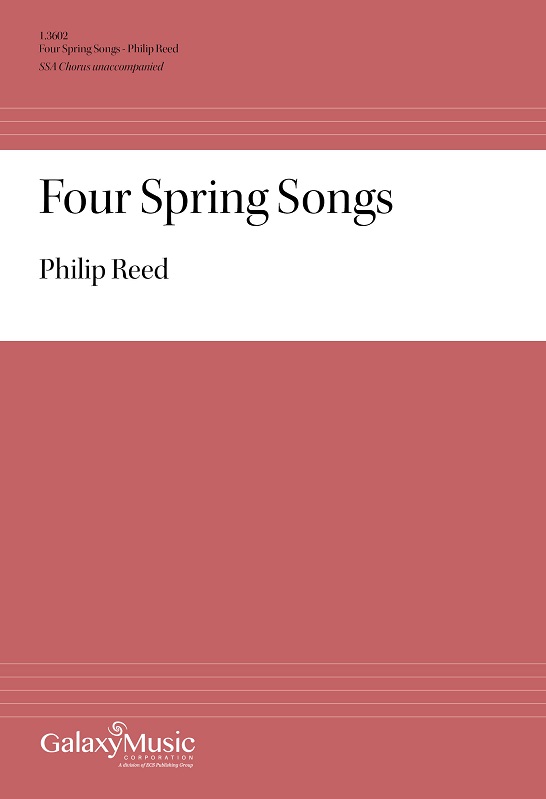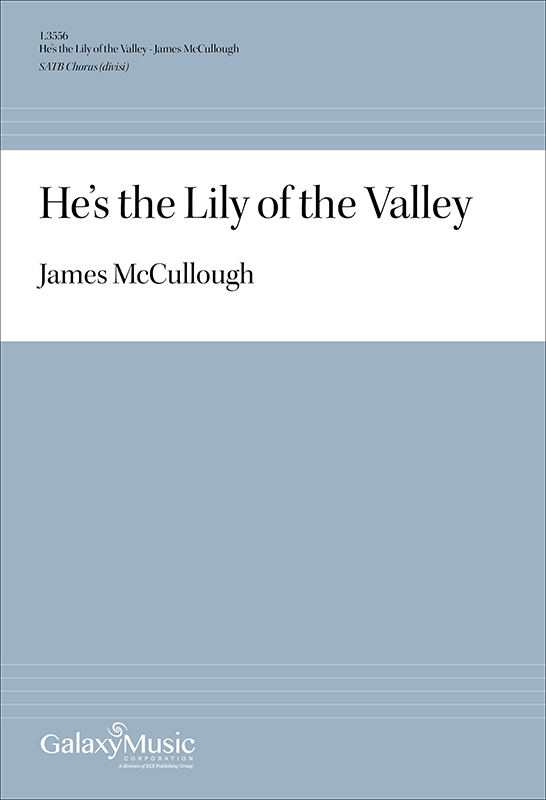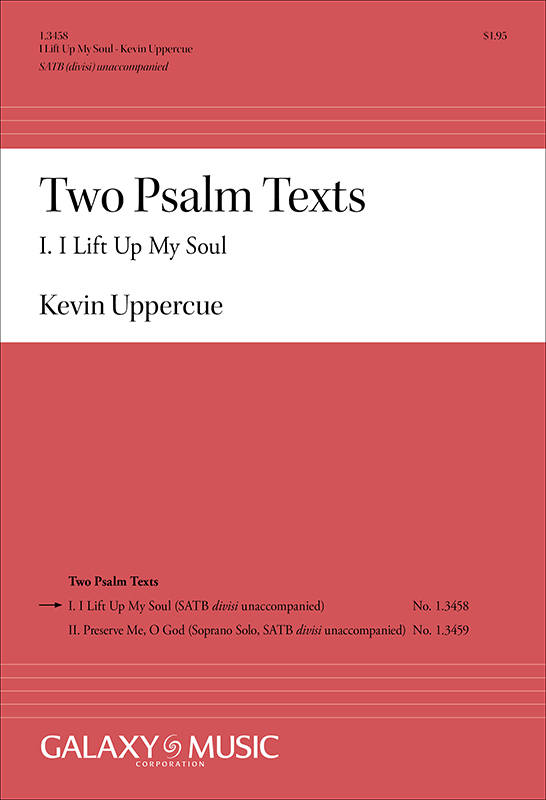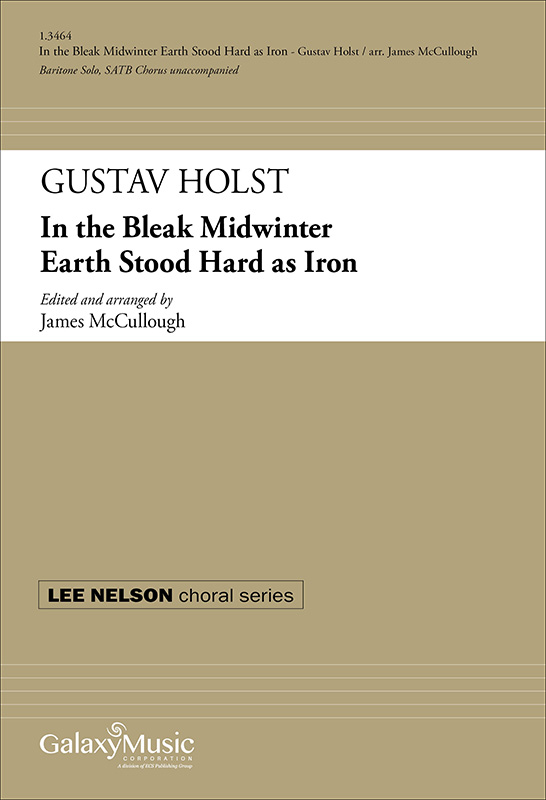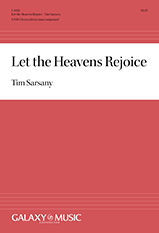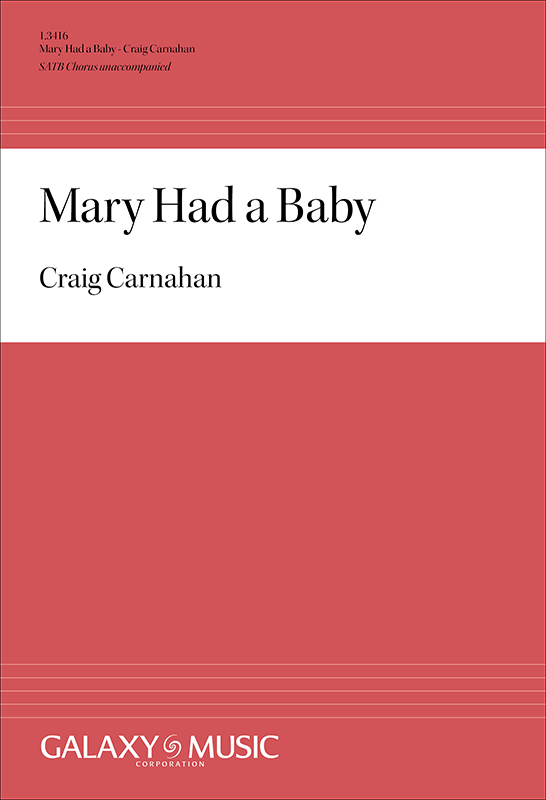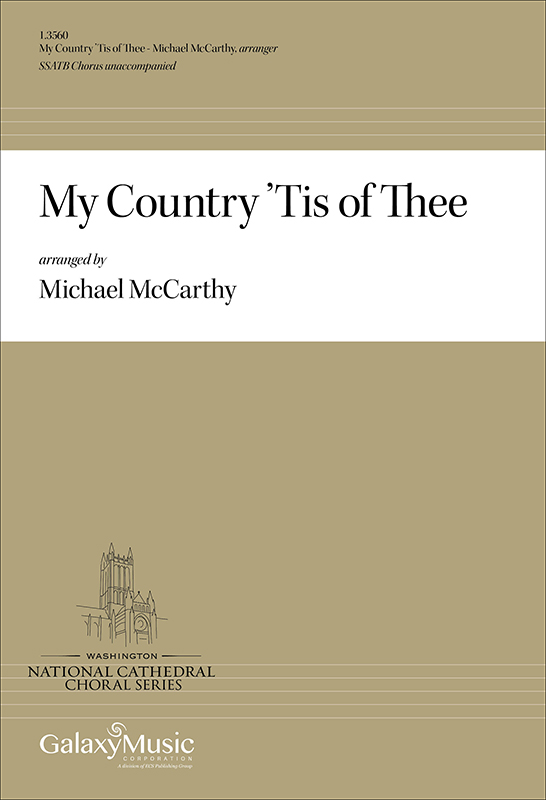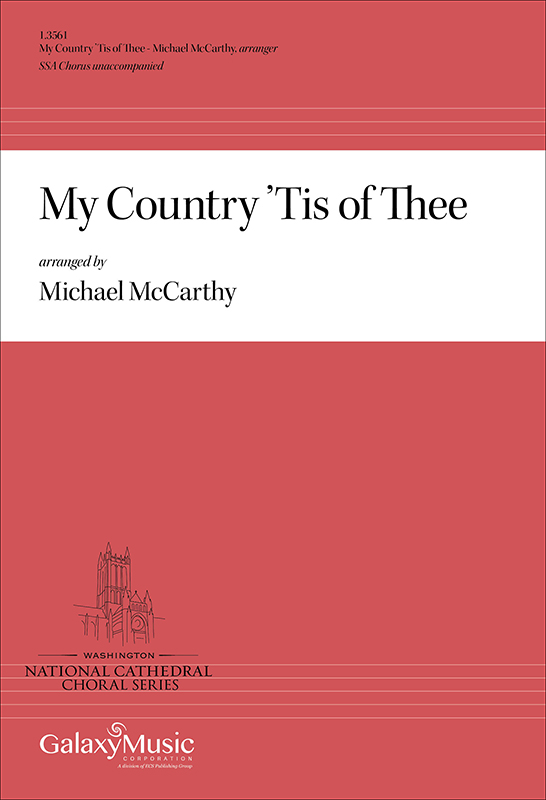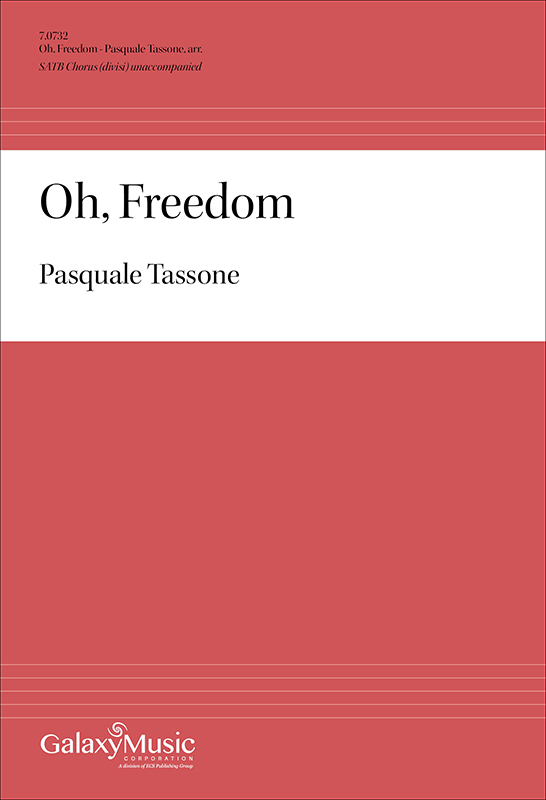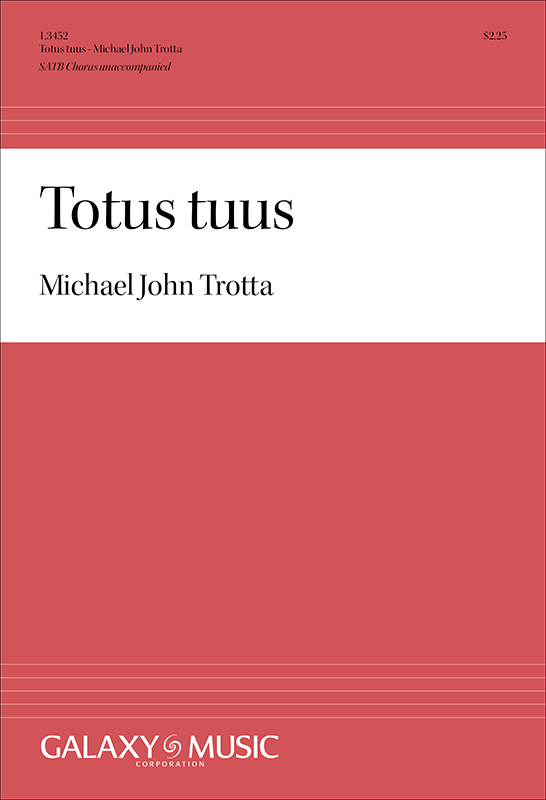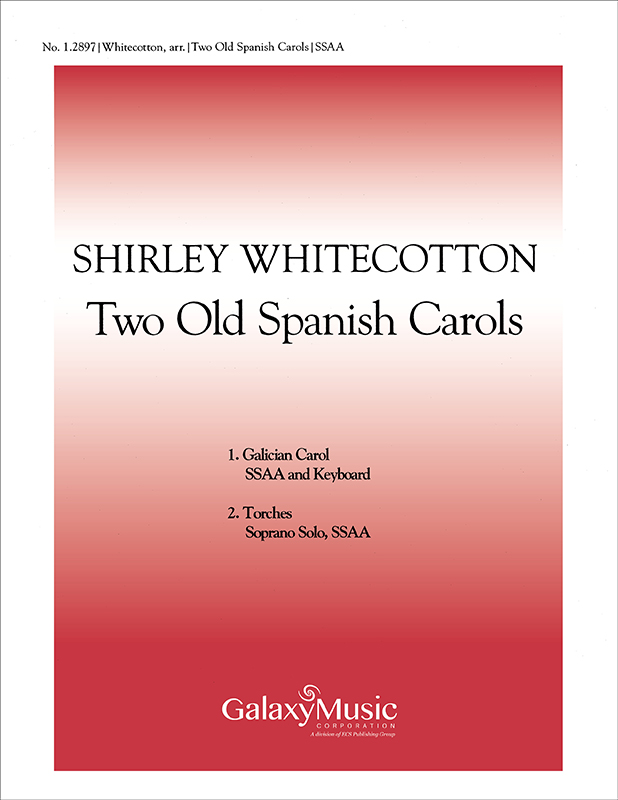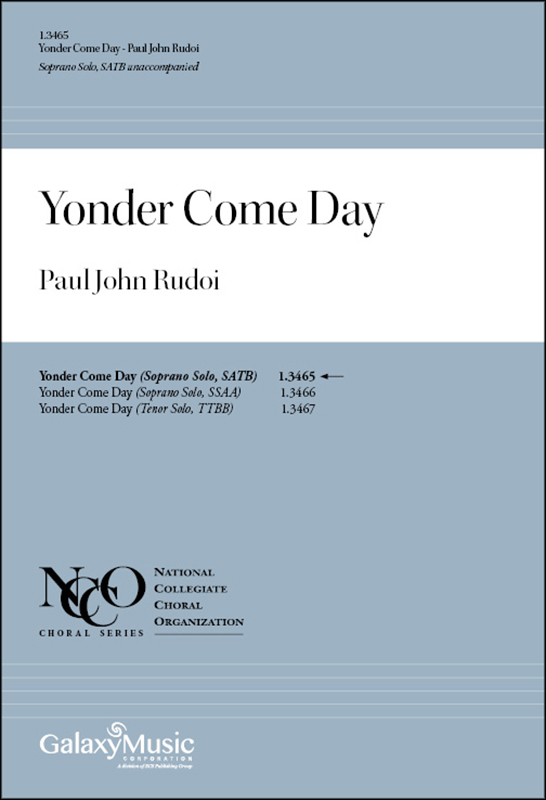In Celebration of the Human Voice - The Essential Musical Instrument
Home | Doo Wop | Barbershop | World | Contemporary | Christian | Vocal Jazz | Choral | Christmas | Instructional | Arrangements
Classical | Opera | Musicals | Personality | Young Singers | Disney | Videos | Songs | The Artists

Sheet Music Series
All | Barbershop | Choral | Choral Youth | Christian | Contemporary | Gospel | Musicals | Vocal Jazz | World | Male | Female | Christmas
Galaxy Music
Galaxy Music Corporation was founded in 1930 in New York by Marshall Kernochan, a cultivated New Yorker who had a great love of classical music. Kernochan quickly surrounded himself with experienced editors, and the company took off with choral and vocal music, moving into other genres along the way. Among its first composers were Katherine K. Davis, John Work, and Douglas Moore. As the firm expanded its catalog to take a more educational focus, there were also new agreements with overseas publishers, such as Stainer & Bell of London, which gave access to the music of composers like Vaughan Williams, Delius, and Jacob. By mid-century, Galaxy composers included Ivan Galamian, George Rochberg, Alice Parker, and Donald Waxman, as well as composer and Galaxy editor Robert Ward, who would go on to write the Pulitzer Prize-winning opera, The Crucible. John Kernochan, Marshallís son, ran the company from his fatherís death in 1955 until 1989, when he retired from his day job as a professor and authority on intellectual property at Columbia University Law School. At that time, he sold to E. C. Schirmer Music Company, an enterprise with similar scope and history, and the acquisition came under the name of ECS Publishing.
All | SATB | SATB divisi | SSA | SSAA | SSAATB | SSAATTTBB | SSATB | TB | TTBB | Unison
Individual Folios
A Cappella
Displaying 1-28 of 28 items.
Commissioned for Choral Arts Northwest who gave its premiere performance in 2011 under their artistic director, Robert Bode. The music is primarily contrapuntal in texture, and its tonal language features a certain level of dissonance but within a diatonically modal context. There is a textual climax about two-thirds of the way through, mirrored in the music; a short quieter section follows, leading to an ecstatic "Gloria" conclusion. Duration: 3:40
Composer: William Averitt
Written in 2010 in honor of the 30th anniversary season of Winchester (Virginia) Musica Viva, who gave its premiere performance under their music director, Kenneth Nafziger. The piece begins simply with an almost folk-like melody whose brief phrases are heard throughout, fragmented, varied, and recombined in counterpoint. The music builds to a satisfying climax before a quietly mysterious "alleluia" ending, returning to the original simple melody. Duration: 3:50
Composer: William Averitt
The text is an excerpt from the Salve Regina, also known as the Hail Holy Queen, a Marian hymn and one of four Marian antiphons sung at different seasons within the Christian liturgical calendar of the Catholic Church. The Salve Regina is traditionally sung at Compline in the time from the Saturday before Trinity Sunday until the Friday before the first Sunday of Advent. The Hail Holy Queen is also the final prayer of the Rosary. Duration: 3:40
Composer: Michael John Trotta
The text originally comes from Psalm 80:2. It is traditionally used on the third Sunday of Advent, the "Gaudete" or "Rejoicing" Sunday, when penitential exercises are suspended to symbolize the coming of the joyous Christmas season. The text, Excita, Domine, is also used in some churches for the "Stir Up Sunday," on which Christmas puddings are made and literally "stirred up." The beginning of the piece quotes the "Alleluia" from the original chant, and then moves from the austere to the joyful "Alleluia, excite" (Stir up thy strength, O Lord). The piece should move along quite briskly, symbolizing the joy and urgency of the text. -Jonathan Adams. Duration: 1:34
Composer: Jonathan Adams
This arrangement of one of the most beloved spirituals begins with some Jazz-style scat singing in all the voices before the altos and sopranos begin the first refrain. The style shifts to driving, straight eighth notes to bring the arrangement to an exciting conclusion. Duration 4:17
Composer: Pasquale Tassone
These texts are taken from the Kokin Wakash , a collection of Japanese waka poetry compiled from various poets in the early tenth century. They show the passing of the season from the first buds hidden beneath the snow to the last petals washing downstream. The simple melodies and clear textures attempt to capture the poets' graceful blending of vivid natural imagery and piercing emotional perception as the sights and sounds of spring are made to express the bittersweetness of our brief existence.
Composer: Philip Reed
Unlike some published versions of this African American spiritual, McCullough's rendering is "not slow, but not too fast," in the words of the composer. Transcribed from his father's singing of this tune, this version is "always flowing, with joyous conviction and thanksgiving." The divisi designation is not to be taken lightly; in one place the women divide into five parts and sing alone, in another the men similarly divide into four parts. The result is joyous and emphatic. Duration: 2:40
Composer: James McCullough
These settings present disparate manners in which to utter these two terse, yet potent psalm texts: from the sorrowful to the exuberant, the primitive to the elegant. The music reflects these wide-ranging interpretations with interchanges of contrapuntal and homophonic textures, ostinato and scalar passages, a broad harmonic palette, and the utilization of the full tessitura of the chorus. Duration: 2:30
Composer: Kevin Uppercue
This new setting nicely balances the familiar with the creative, all the while treating the beloved Holst tune (and the full five verses of the Rossetti text) in a fully idiomatic manner for unaccompanied SATB chorus (divisi). There are touches of humor in the arrangement (a baritone soloist appears right where you'd hope he'd be, and at one point the basses sing sotto voce "Go, angels go!") as well as a clear intention to paint the deeper meaning of the text. This is a great addition to your Christmas repertoire. Duration: 4:30
Arranger: James McCullough | Composer: Gustav Holst
"This gentle spiritual from St. Helena Island is often associated with the Christmas season, rich with images of the manger and the star illuminating the skies over Bethlehem. But a unique turn is found in the final line of each stanza: 'People keep a-comin' but the train done gone.' Train imagery is often found in Spirituals dating from this era. For the slaves, trains were synonymous with freedom and escape-whether spiritual freedom as represented by the Gospel Train, or the literal freedom the Underground Railroad provided. This metaphor adds a poignant and uniquely human exclamation point to the celebration of the birth of the one who came to set us free." -Craig Carnahan. Duration: 4:00
Composer: Craig Carnahan
Missa Brevis began as a wedding gift for friends of the composer. The Sanctus and Agnus Dei were written for that purpose in 1980. The entire work was completed over the course of the next three years. It received its premiere performance nearly twenty years later by the Elmer Iseler Singers, Lydia Adams director, on February 5, 1999, as winning the composition in the Ruth Watson Henderson Choral Composition Competition for that year. Kyrie, Credo, and Agnus Dei borrow directly from liturgical chant, or are otherwise inspired by the spirit of that repertoire. Missa Brevis is intended both for liturgical and concert use, and may be performed by a quartet or chamber choir. Duration: 14:00
Composer: Leonard Enns
The origin of the melody My Country 'Tis of Thee is not known but assumed to generate from Europe, where it is also used for the national anthem of the United Kingdom, God Save the Queen. The text for My Country 'Tis of Thee was written by Samuel Francis Smith and was given its first public performance on July 4th, 1831 at an Independence Day celebration in Boston. It was published a year later under the title America. This arrangement was performed at the Capitol for the 2017 presidential inauguration. Required to be an unaccompanied arrangement, it follows a theme and variations structure where the melody is passed throughout the choir. Due to the nature of the event, this arrangement is deliberately ceremonial in feel. Duration: 2:15
Composer: Michael McCarthy
The origin of the melody My Country 'Tis of Thee is not known but assumed to generate from Europe, where it is also used for the national anthem of the United Kingdom, God Save the Queen. The text for My Country 'Tis of Thee was written by Samuel Francis Smith and was given its first public performance on July 4th, 1831 at an Independence Day celebration in Boston. It was published a year later under the title America. This arrangement was performed at the Capitol for the 2017 presidential inauguration. Required to be an unaccompanied arrangement, it follows a theme and variations structure where the melody is passed throughout the choir. Due to the nature of the event, this arrangement is deliberately ceremonial in feel.Duration: 2:15
Composer: Michael McCarthy
Commissioned by The Wartburg Choir and Dr. Lee Nelson, and premiered at Christmas at Wartburg in 2019. This genre-bending piece- blending elements of rock, gospel, spiritual, and spoken word- is appropriate year round, but has special resonance in the season of Advent, when we wait with longing hearts- hearts at times filled with joy, but at times filled with heaviness. The text of the piece recalls iconic stories of rescue and promise in the Old Testament, and invites the chorus and listener to imagine those promises coming true today- and to imagine a world of mercy, justice, peace, and compassion.
Composer: Kyle Pederson
This setting begins with a simple, unison singing of the "Veni Emmanuel" plainsong melody. Jubilant choral statements of "rejoice, rejoice" are interjected into the serenity of the verses to create a deeply spiritual experience. The piece is adapted from a larger work titled Christmas Joy for SATB chorus, audience/congregation, brass quintet, organ and optional percussion.
Composer: Stephen Chatman
An interesting spiritual in that it was written after the Civil War and therefore after the slaves had been freed. However, as the struggles of African-Americans continued, it has become a prominent song in the march for equality, even into the 21st century. A relaxed, dignified setting with expressive phrases and some chromaticism which adds to its emotive quality. Duration 3:15
Composer: Pasquale Tassone
A deeply moving lament that aims to capture the feelings of the dire circumstances faced by African American slaves. This arrangement has a slow, jazz feel but is reverent and dignified. The texture is wonderfully varied through the use of homophony, ostinati, and imitation.
Composer: Pasquale Tassone
A setting of a portion of the Hebrew prayer Al HaNissim ("On the Miracles"), recited on the Jewish festival of Chanukah. The prayer is an expression of gratitude for God's intervention on behalf of the Jews in their revolt against their Syrian-Greek oppressors in the 2nd century BC, one of the miracles associated with Chanukah. For Jews, the eight-day holiday is both a celebratory and solemn observance. Chanukah, which means "dedication" in Hebrew, commemorates both the Jewish victory and the rededication of the Holy Temple in Jerusalem following their triumph, each described in this text. This setting captures both the joyous and reverent nature of Chanukah. -Rex Isenberg Duration: 3:00
Composer: Rex Isenberg
Louis de Montfort wrote the text used in this setting in the early 18th century. It is a hymn of devotion and total surrender to a power greater than oneself. The lush extended harmonies proceed from an pedal point and continue in straightforward rhythm making the piece at once accessible yet giving new life to the ancient text. Even the most dissonant moments of the work remain firmly planted in the diatonic scale. The thoughtful voice leading enables this piece to be used in both liturgical and concert settings. Duration: 4:50
Composer: Michael John Trotta
Vidi aquam is a setting of a Sprinkling Rite for Eastertide composed for SATB chorus (divisi) unaccompanied. This work is written in a style that results in music that is ever-changing; flowing in one harmonic direction but never reaching the desired destination. In it, I make use of the original antiphon in small fragments and, near the end, the Doxology is sung by both men's and women's voices. Unique harmonic structure is core to my effort to bring these timeless chants to life in this composition. One should listen to and "channel" Gregorian Chant when preparing this piece with the intent of evoking a style of singing that echoes its qualities. -Connor Koppin. Duration: 4:40
Composer: Connor Koppin
Paul John Rudoi's narrative arrangement is not just another medley of spirituals. Paul's choice to combine Yonder Come Day, a spiritual championed by Bessie Jones and the Georgia Sea Island Singers, with specific spirituals, including "Hush, Hush," "Somebody's Calling My Name," "Steal Away," and "Swing Low, Sweet Chariot," well known for coded messages was intentional, shedding light on the hope required to move beyond the horrific atrocities millions encountered because of American slavery, Jim Crow era tactics, and more. The unused parts of these spirituals are no less important, and should be mentioned along with Bessie, the Singers, and other parts of this history when learning this piece. Ultimately, it is built to serve as a testament to the courage of those enslaved, a statement of hope for anyone marginalized, and a small part in the continuing conversation about our shared American history.
Composer: Paul John Rudoi
Paul John Rudoi's narrative arrangement is not just another medley of spirituals. Paul's choice to combine Yonder Come Day, a spiritual championed by Bessie Jones and the Georgia Sea Island Singers, with specific spirituals, including "Hush, Hush," "Somebody's Calling My Name," "Steal Away," and "Swing Low, Sweet Chariot," well known for coded messages was intentional, shedding light on the hope required to move beyond the horrific atrocities millions encountered because of American slavery, Jim Crow era tactics, and more. The unused parts of these spirituals are no less important, and should be mentioned along with Bessie, the Singers, and other parts of this history when learning this piece. Ultimately, it is built to serve as a testament to the courage of those enslaved, a statement of hope for anyone marginalized, and a small part in the continuing conversation about our shared American history.
Composer: Paul John Rudoi
Paul John Rudoi's narrative arrangement is not just another medley of spirituals. Paul's choice to combine Yonder Come Day, a spiritual championed by Bessie Jones and the Georgia Sea Island Singers, with specific spirituals, including "Hush, Hush," "Somebody's Calling My Name," "Steal Away," and "Swing Low, Sweet Chariot," well known for coded messages was intentional, shedding light on the hope required to move beyond the horrific atrocities millions encountered because of American slavery, Jim Crow era tactics, and more. The unused parts of these spirituals are no less important, and should be mentioned along with Bessie, the Singers, and other parts of this history when learning this piece. Ultimately, it is built to serve as a testament to the courage of those enslaved, a statement of hope for anyone marginalized, and a small part in the continuing conversation about our shared American history.
Composer: Paul John Rudoi
The writers' intent is to incorporate the sacred and the secular in this adaptation of the final, or seventh, of the Last Words of Christ, "Into your hands I commend my spirit." This movement, set for SSAATTBB chorus unaccompanied, begins with the Latin text and ends with Brian Newhouse's poem in English. The English text personalizes the experience and causes the listener to reflect on death in general, both Christ's and our own. Duration: 6:30
Composer: Connor Koppin
![]() Vocal Harmony Arrangements - Home
Vocal Harmony Arrangements - Home
Christian | Gospel | Standards | Musicals | Specialty | World | Barbershop | Contemporary | Vocal Jazz | Choral | Christmas
Mixed Voices | Female | Male | 8 Parts | 6 Parts | 5 Parts | 3 Parts | 2 Parts | Medleys | Solo | Folio Series | New Releases
Select a Category |
Want to Sing? - Find a Chorus Near You
List of Choruses by State | List of Choruses by City

